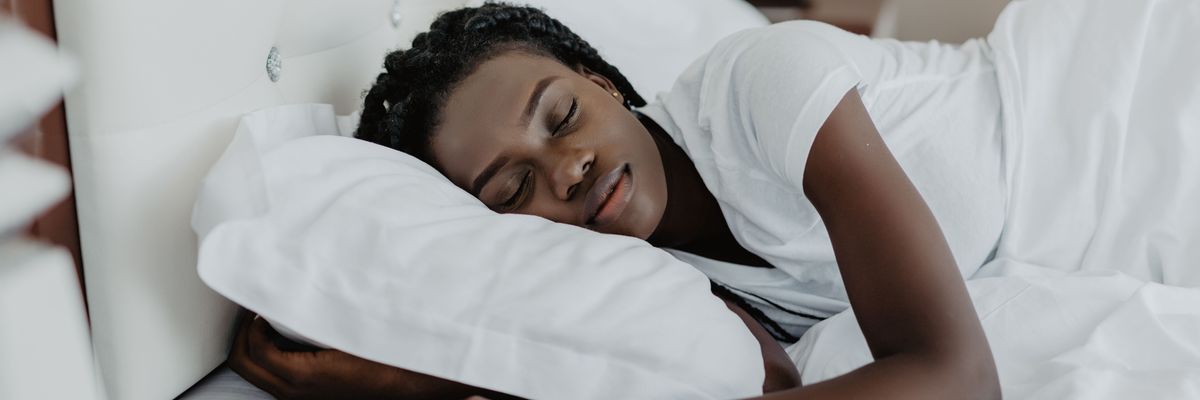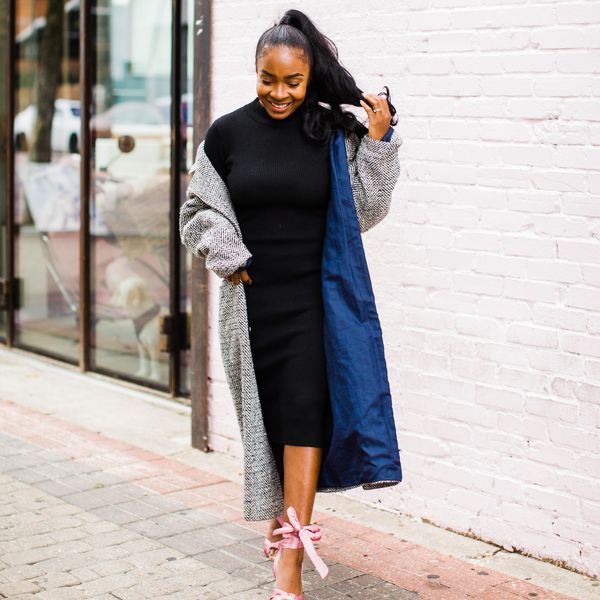
There is an untrue notion that HBCUs somehow don't measure up when it comes to their PWI counterparts. Where this ridiculous notion came from, I'm not sure. But what I do know is that mainstream media is very often guilty of perpetuating this dangerous conception, which in turn has caused both black people as well other races to view them as less than. But considering that some view our entire race as less than, I guess it's not really all that surprising. The reality is, it should not take Beyonce's Homecoming at Coachella or Vice President Kamala Harris to propel the world to give HBCUs the respect that they so rightly deserve. Yes, it's true that HBCUs were created to give black people an opportunity at higher education that they may not have otherwise had in the 1830s, but that does not make them any less amazing both back then or now.
While I personally did not attend an HBCU, I began to hear about the dope experience that only an HBCU can bring at an early age by my parents who both attended North Carolina A&T University. Aggie Pride! And while I could be found at HBCU parties and homecomings when I myself was in undergrad at a PWI, I could never speak to the true HBCU experience and what it means to attend one. That's where the eight amazingly talented women you'll soon meet come into play. They all are HBCU alumni and will share how attending a historically black college or university helped shape their lives and why they have always and will always reign supreme.
Rachelle Townsend, Vice President Internal Audit Manager
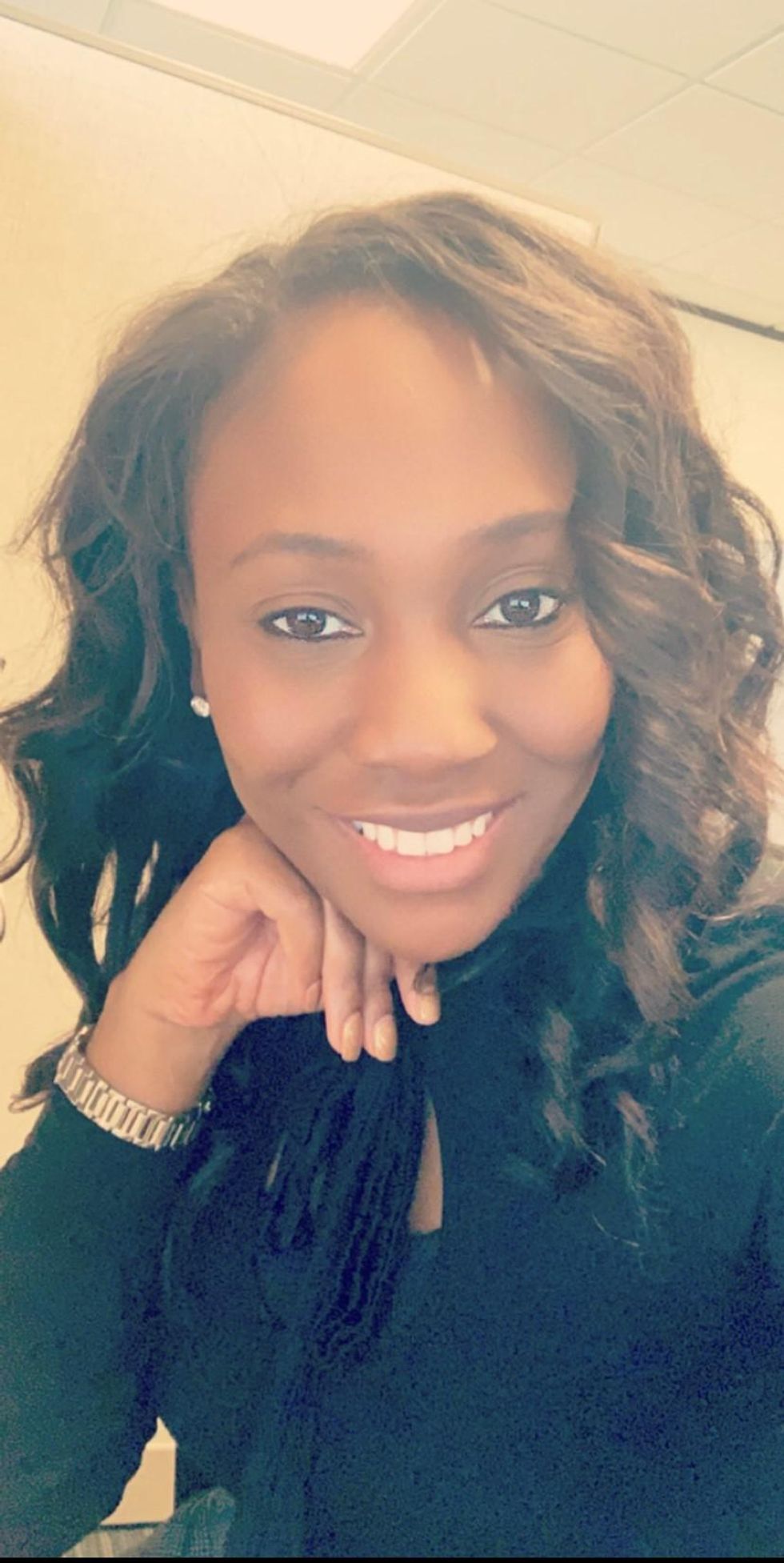
Courtesy of Rachelle Townsend
North Carolina Central University, Durham, NC
"During my first two years of high school, I attended a predominately black school, however, I moved at the end of my sophomore year and ended up at a majority-white high school. I remember how empowered I felt at my first high school when I walked in honors or AP classes and all the students looked like me. It was quite the opposite when I attended my second high school, as I was often one of a handful of non-white students in the honor or AP classes. I felt as though I had to prove I deserved to be there, while also shouldering the burden of speaking on behalf of my entire race. I complained to my dad about it and, being an HBCU grad himself, he immediately suggested that I attend an HBCU. He reminded me that while I'd initially set my sights on a PWI, I had my whole life to be a minority.
"Attending an HBCU provided the reassurance that I not only belonged at any table or boardroom I walked into, but it taught me how to own my place at said table or boardroom. This shaped my life because it taught me not to downplay my contributions or minimize my worth just so people would accept my presence."
Chevita Phifer Stewart, Director - Legal Advertising Review at Assurant
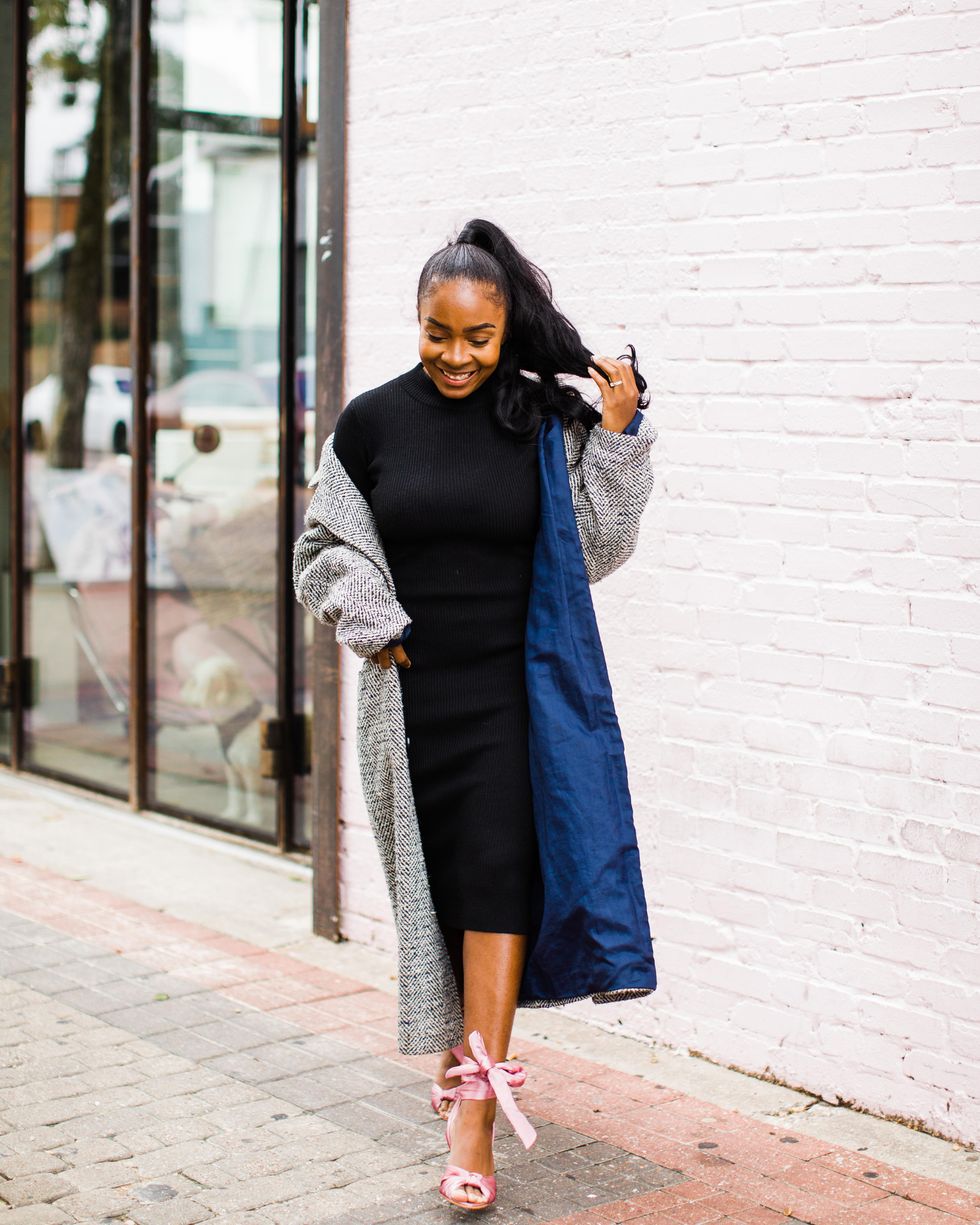
Courtesy of Chevita Phifer Stewart
Southern University Law Center, Baton Rouge, Louisiana
"A family friend recommended that I apply and I felt like I was 'home' when I visited the campus. I attended a PWI for undergrad and I only felt 'at home' when I was with my sorority sisters (Alpha Kappa Alpha Sorority, Incorporated). Southern [University] changed my life. I was able to learn and feel comfortable making mistakes (I was terrible in Moot Court but I loved International Law).
"Oftentimes black students are treated as a monolith, we aren't, and Southern understood that which gave us the space we needed to matriculate through law school. Southern taught me to feel comfortable going after all of my dreams but more importantly, I was surrounded by extremely smart black people - black excellence."
J. Desiree Rodriguez, B.S., M.A., Author, Entrepreneur, and Educator
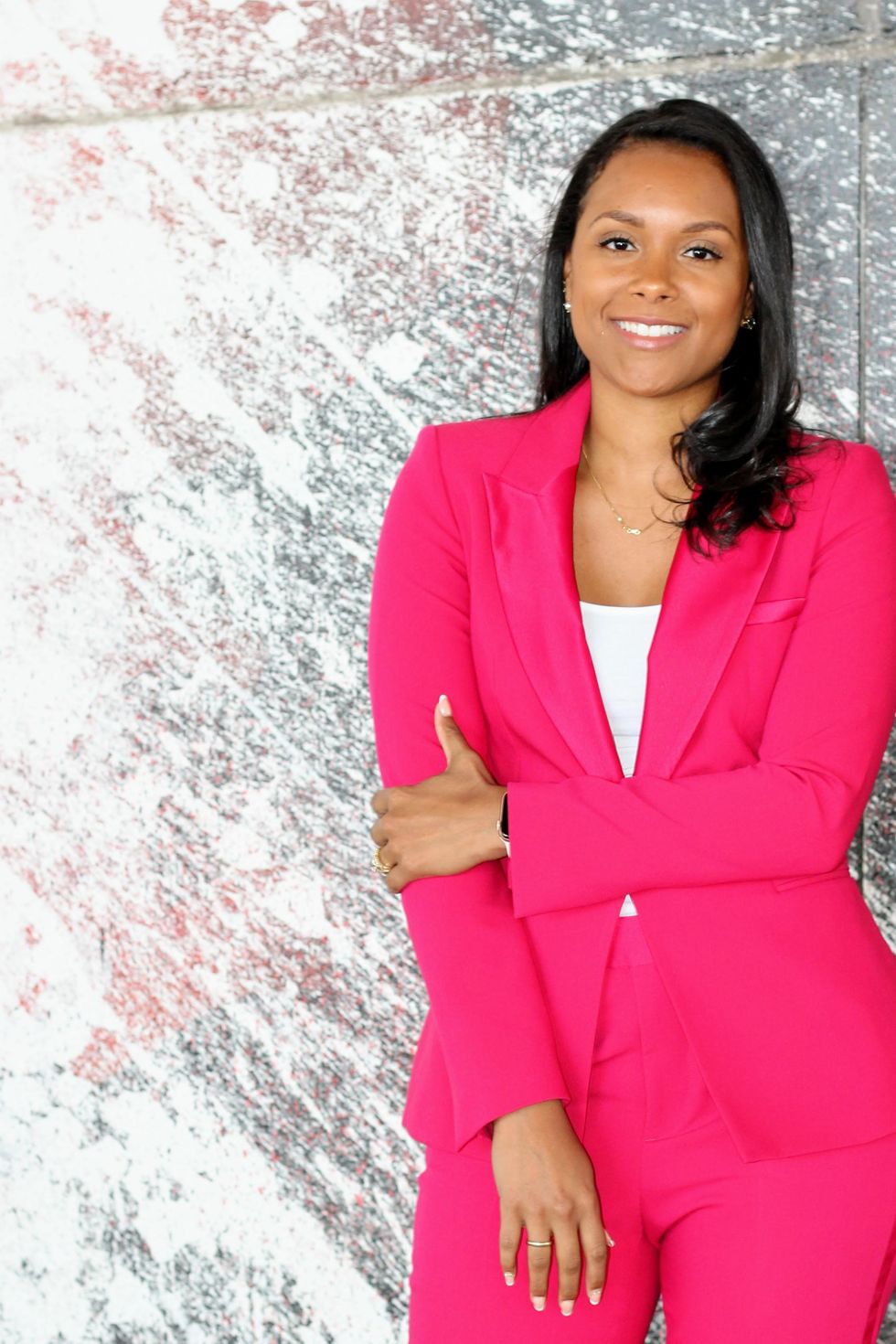
Courtesy of J. Desiree Rodriguez
Norfolk State University, Norfolk, VA
"Originally I chose an HBCU because, at the time, that was the only institution that accepted my application. I got denied because of my SATs. I had over 120 hours of community service, an advanced diploma, a 3.0 GPA, recommendation letters, played sports, and was captain in AFJROTC, and it was not enough to get me into my first school of choice. Attending Norfolk State University was the best decision I ever made. It helped me discover, understand, and value the African-American history that is engraved in this country and the world. NSU helped me to discover who I am as an Afro-Latina and to understand the biases in education and jobs.
"To think an HBCU was not on my top list of schools, versus it being the inspiration and thread that is embedded in who I am as a woman. I am forever grateful for the experiences I had. I have been an active member of Sigma Gamma Rho Sorority Incorporated for nearly ten years and am entering into my third year of Doctoral School. Without NSU, I believe my path and passions would be different. Thank you Norfolk State!"
Erica R. Jones, Family Physician, Podcaster, Author
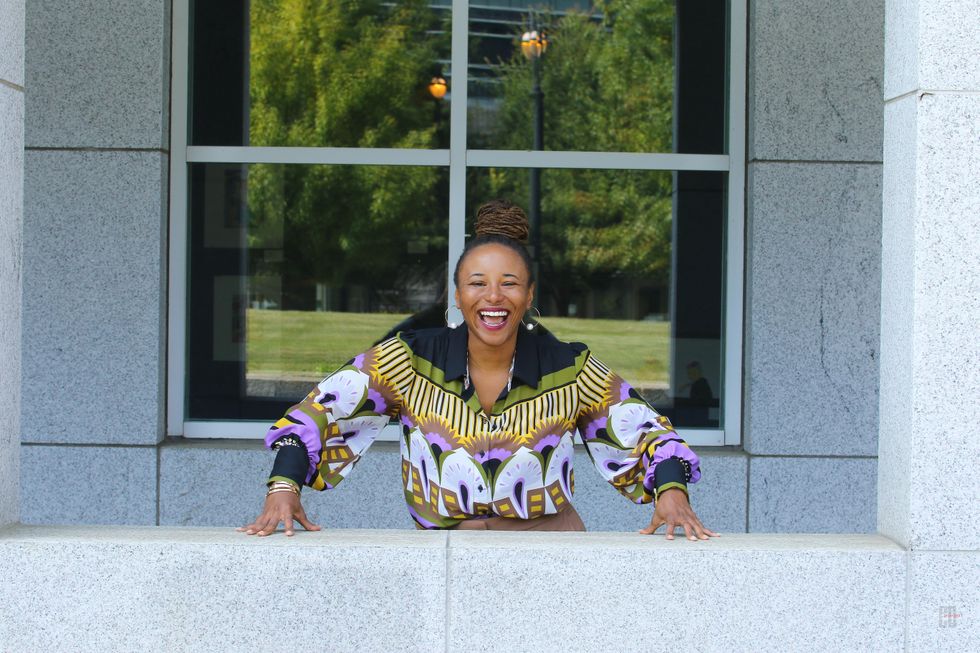
Courtesy of Erica R. Jones
Meharry Medical College, Nashville, TN
"I chose to attend Meharry because I understood the value of learning medicine in an environment that is dedicated to nurturing its students along the arduous journey. As an applicant with natural hair, my mother feared that I would be rejected after my interviews at various medical schools and even offered me one of her wigs! However, as soon as I walked into the interview room at Meharry, my locs were celebrated. The welcoming and warm spirit of the staff at Meharry propelled me into my current career."
Catch up with Erica on Instagram at @drericajones and @theartoftransitionpodcast.
Teronda Seymore, Writer
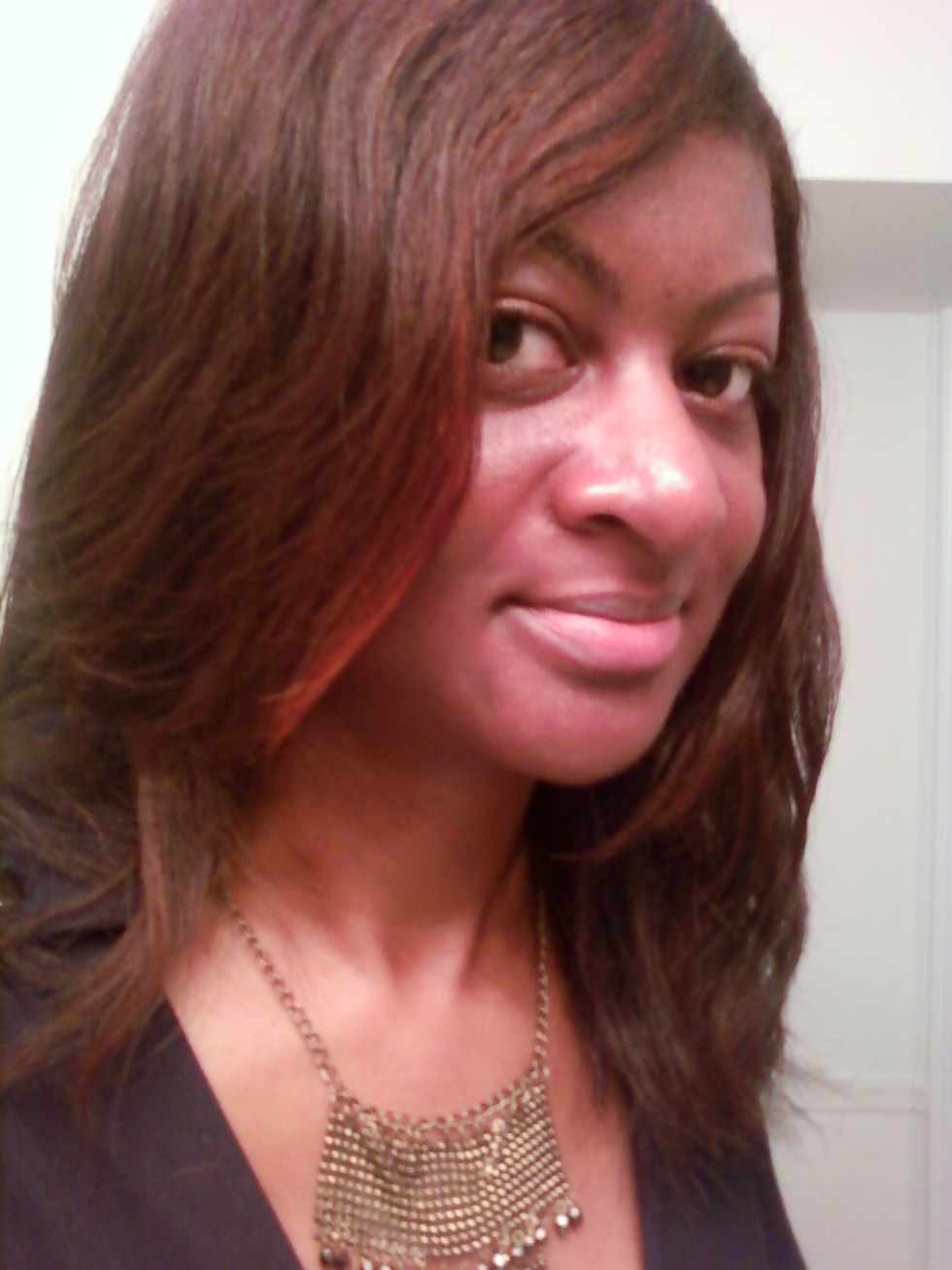
Courtesy of Teronda Seymore
Hampton University, Hampton, VA
"Spike Lee's School Daze was released when I was in high school. I don't want to say that watching that movie solely influenced me to attend an HBCU, but I did want the unique experiences that I could only get from a Historically Black College like Homecoming and Battle of the Bands! However, my decision was based more on the idea of attending a school where all of my classmates were intellectuals who looked just like me. I grew up in a rural area where black people generally aren't afforded the same opportunities as white folks. That can take a toll on both your body and your mind because it affects a number of things from where you work, to how much money you can make, to where you live.
"Attending an HBCU showed me a different perspective of life outside of fields, factories, and farms and taught me that the color of my skin doesn't preclude me from another life."
"However don't get it twisted, that doesn't mean I was oblivious to racism and microaggressions, or that I didn't believe either existed. I knew they did and it's not something that's unspoken at an HBCU. I think Hampton better equipped me with tools to navigate those evils and still succeed. And it gave me permission to dream bigger with the mindset that I can absolutely manifest my dreams."
Aminata J. Ba, Esq, Attorney, currently practicing in contracts, healthcare law and litigation
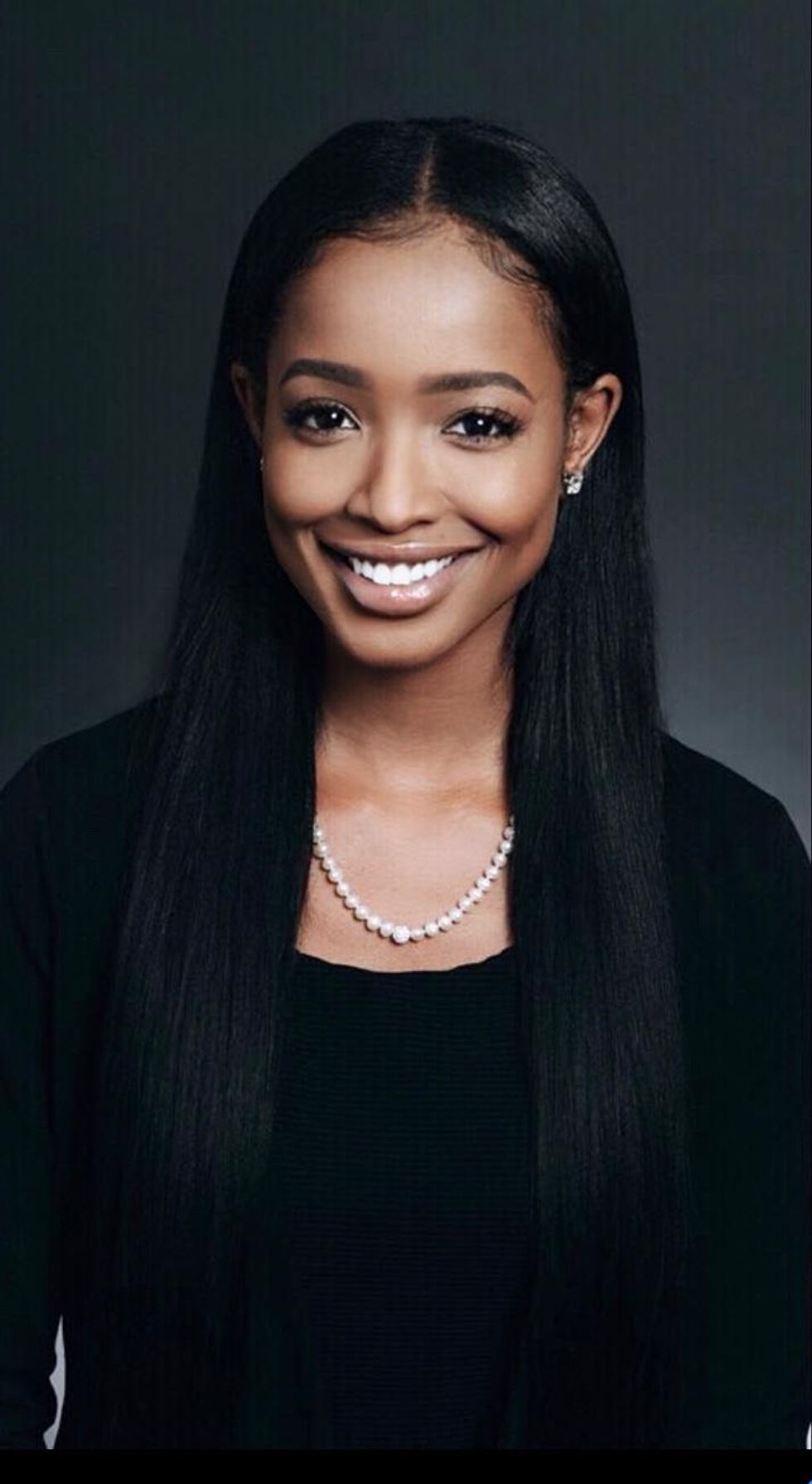
Courtesy of Aminata J. Ba
Hampton University, Hampton, VA
"I went to Hampton [University] on a visit with one of my friends from high school, and her dad, for an Omega Psi Phi probate on a whim. We met students from different places and backgrounds, but it still felt like we were the same. The high school I attended was extremely diverse, so it was almost like culture shock to be at an educational institution where everyone looked like me. I loved it and it just felt right. That weekend trumped any desire to attend any other schools. I think HBCUs pressure students to do more, be disciplined, and establish a sense of community. It honestly prepares you to be successful in professional environments where white people dominate.
"Students are surrounded by Black people on all parts of the spectrum, with different stories, and create lifetime friendships. The environment elevates black students' confidence and builds character. Also, some of the disorganization of attending an HBCU (ask anyone that's ever had to go to the Registrar or Financial Aid office) really prepares you for the B.S. you will have to deal with in the real world, building tenacity, and patience. One of the biggest bonuses I learned once I finished matriculating was how massive and strong the alumni network was. I think HBCU students carry community fostering skills they learn in college for life. It shows in the strength of our alumni networks."
Aliyyah Bragg, Scientist, Clinical Research
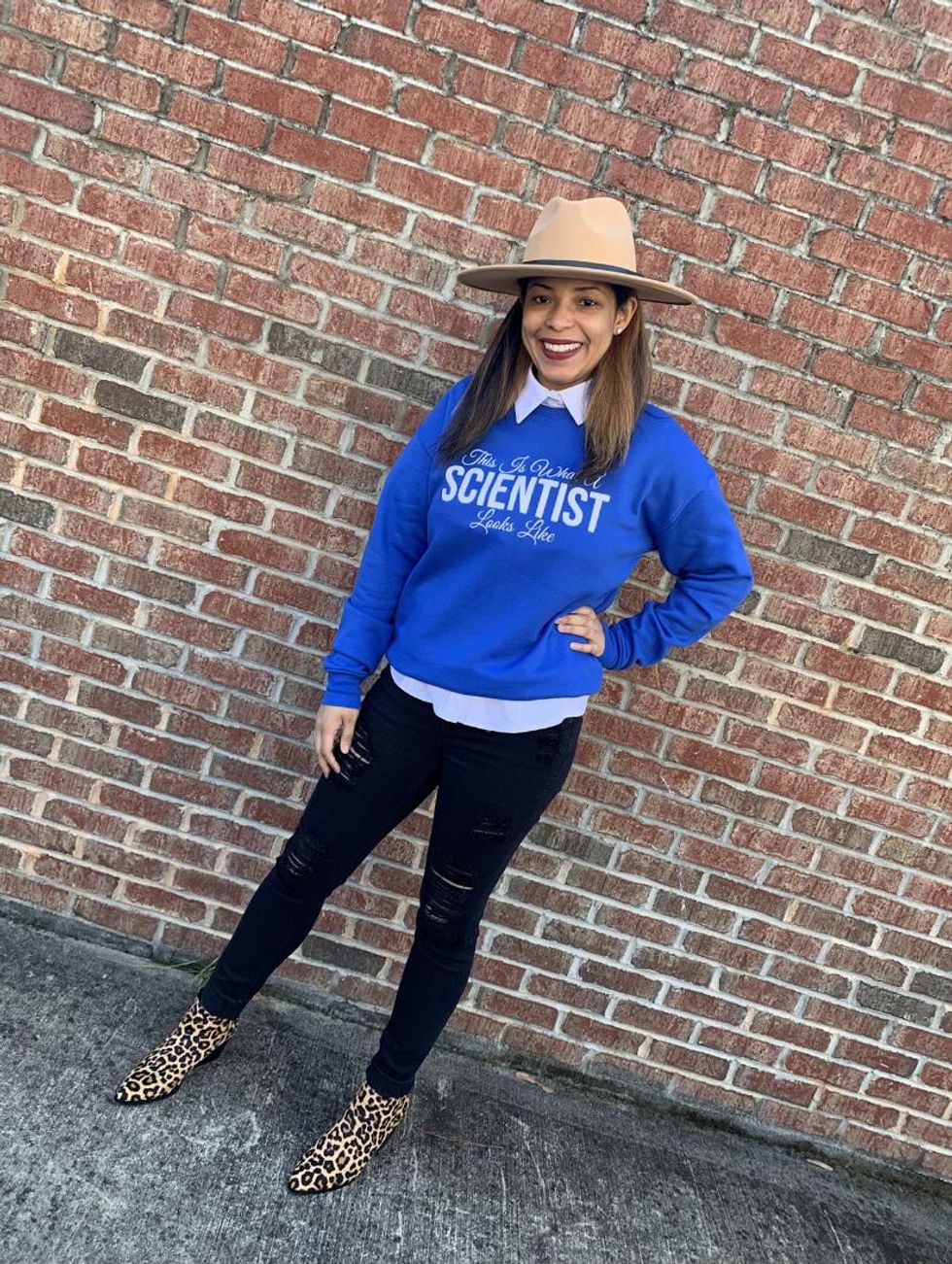
Photo Courtesy of Aliyyah Bragg
North Carolina A&T State University, Greensboro, NC
"I chose to attend an HBCU to be a part of history. While growing up, I did not witness or come across many women in science. Although they may have been hidden in books, the reality of women scientists appeared far and out of my reach. The absence of women scientists in my community inspired me to navigate through this intellectual journey to become one. During that journey, I wanted to be the product of the environment I was placed in to in turn show the world what HBCUs had to offer: excellence.
"Attending an HBCU helped shape my life by being able to develop the confidence to go out in the world and make the difference the world so desperately needed and to gain the courage to show the world innovation from fresh new eyes. It also gave me the opportunity to develop leadership skills that are needed to thrive in Corporate America. My contribution as a scientist is based upon my knowledge, skills, and abilities gained during foundational training that was acquired from an HBCU. So if you ever wondered what the future looks like, it's you. And if you wondered what a scientist looks like, well, it's me."
To stay connected with future projects bringing awareness to HBCUs and the STEM Field follow Aliyyah on Instagram: @aliyyah_b and Facebook: @aliyyah_b.
Crystal S. Gaines, M.A., ESQ, Lawyer at The Gaines Firm, LLC
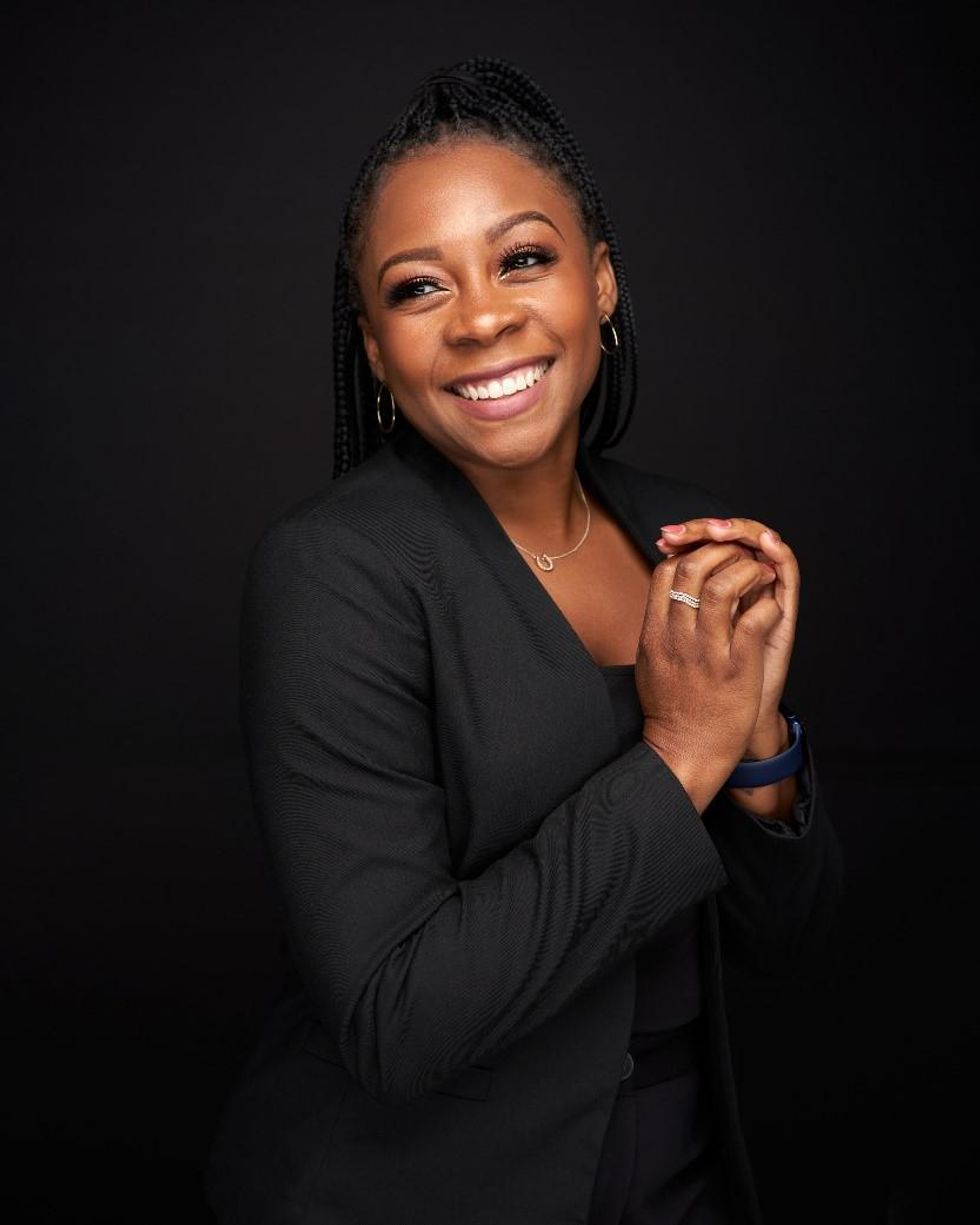
Photo Courtesy of Crystal
Norfolk State University, Norfolk, VA
"I grew up in a very small, rural, and conservative town outside of Henrico, Virginia. There were probably 25-30 black people out of the 120 people in my graduating class. Growing up in such a small, conservative town, you see the favoritism and stereotyping of individuals based on race quite often. In my particular situation, I noticed it more as it related to me when it was time for me to explore post-high school options. My counselor only introduced me to PWI schools. When I was not interested, she told me that she noticed how I took pride in my appearance and that I should consider getting a cosmetology license as an alternative. I was seriously deterred and unsure of what was next for me.
"It was not until I started to do my own research that I was introduced to HBCUs. I went on my first HBCU tour and I felt at home immediately. I felt something I had never felt before: I felt seen and that feeling never went away. A large part of my decision to attend an HBCU was due to the diversity of the students and the sense of pride in being a black woman/man that was embodied in the culture, values, and academic experience."
"I had never been surrounded by so much black pride and it did wonders for my confidence and my professional development. I am forever grateful to the family culture of my HBCU, the financial aid staff who became like Aunties, the cafeteria staff who made sure I was well-fed away from my momma's home cooking; my cheer sisters, who became the sisters I never had; my professors, who became like the north star for my goals and ambitions; and my campus, for giving me a safe space to learn, grown, and feel empowered.
"All that I am today, the confidence, the perseverance, the 'I can do and have it all' mentality – I owe to my alma mater. I cannot overstate the impact of having professors and colleagues who looked like me, across various disciplines, serving as role models on a day-to-day basis. That was a game-changer for me."
"My momma sent her little girl to Norfolk State and Norfolk State gave her a woman of character, intelligence, confidence, pride, and ambition. Norfolk State taught me how to square up with a challenge, the importance of legacy, and knowing your worth as a black woman – I would not and could not have received those gems elsewhere. I wish I could pinpoint one experience over the other, but I can't.
"In truth, it was a collective of what the HBCU culture, pride, and expectations embodied and promoted. At the end of the day, this first-generation, HBCU-made lawyer wouldn't have been prepared for the real world absent of my experiences and network at Norfolk State University."
Are you a member of our insiders squad? Join us in the xoTribe Members Community today!
Featured image courtesy of Chevita Phifer Stewart
This Is How To Keep 'Holiday Season Stress' From Infecting Your Relationship
Hmph. Maybe it’s just me, but it seems like there is something really weird happening in the fall season air (because winter doesn’t officially begin until December 21) that cuddle season is in full swing while break-up season is as well. In fact, did you know that break-ups are so popular during the holiday season that December 11 is deemed Break-Up Day?
The reasons why relationships shift around this time vary; however, I did both roll my eyes and chuckle when I read that a very popular one is because it’s an easy way to get out of getting one’s significant other a Christmas present. SMDH.
Anyway, I personally think that the less shallow folks out here may contemplate calling things “quits” or they at least distance themselves a bit from their partner (and what I’m referring to is serious relationships) due to all of the stress and strain that oftentimes comes with the holidays whether it be financial, familial, due to their tight schedules or something else.
Listen, I would hate for you and your man to miss the fun and happiness of experiencing this time of year, all because you are so overwhelmed or irritated that you can’t really enjoy it. That’s why I have a few practical tips for how to avoid allowing the typical holiday season stress from INFECTING your relationship.
Manage Your Expectations
 Giphy
GiphyUnmanaged expectations. If there is a main reason why the holiday season tends to be so stress-filled for so many people, I’d bet good money that this is the cause. And when you’re in a long-term relationship, expectations can manifest themselves in all sorts of cryptic and/or unexpected ways. You might have relatives who assume that you are going to be with them for Thanksgiving or Christmas when you have other plans in mind. You might be thinking that you are going to spend one amount for presents while your man is thinking something totally different. When it comes to scheduling, your signals may be crossed.
And you know what? To all of these scenarios, this is where clear and consistent communication come in. Don’t assume anything. Don’t dictate anything either. From now until New Year’s, mutually decide to check in once a week, just to make sure that you are both on the same page as it relates to the holidays and what you both are thinking will come along with it. The less blindsided you both feel, the less stressed out you will be. Trust me on this.
Set (and Keep) a Budget
 Giphy
GiphyOkay, so I read that last year, 36 percent of Americans incurred some type of holiday-related debt. Hmph. Last year, there was still some sense of normalcy in this country, chile, so I can only imagine what finances are gonna look like over the next several weeks. That said, since I don’t know a lot of people who don’t find being broke stressful, make sure that you and your bae set a budget and then stick to it this year — no ifs, ands or buts.
Because really, y’all — it doesn’t make sense to deplete savings and/or max out credit cards for a few days of giggles only to be damn near losing your mind because you don’t know how to make ends meet come Dr. Martin Luther King, Jr. Day.
And by the way, this tip doesn’t just speak to things like food and gifts; I also mean travel. If it doesn’t make a ton of sense (or cents) to be all over the place this year — DON’T BE.
Keep Matthew 5:37 at the Forefront
 Giphy
GiphyIf off the top of your head, you don’t know what Matthew 5:37 says, no worries, here ya go: “But let your ‘Yes’ be ‘Yes,’ and your ‘No,’ ‘No.’ For whatever is more than these is from the evil one.” That verse right there? Oh, it’s a boundaries lifesaver! I say that because do you see “maybe” or “I’ll think about it” in there? Nope. LOL. It says that you should tell people “yes” or “no” and leave it at that — and that complements Anne Lamott’s quote, “’No’ is a complete sentence” impeccably well. Yeah, you’ve got to remember that anything beyond a yes or no to a request is privileged information; you don’t owe anyone details or an explanation.
Besides, if you are really honest with yourself, when someone asks you something and you give a “Umm, let me think about it” kind of reply, more times than not, you already know what your answer is going to be — so why not let you both off of the hook? Give your response. Commit to that. And let everyone (including yourself) get on with their lives and schedules.
I promise you that when it comes to those holiday parties, you are pissing more folks off by not RSVP’ing or doing so and not showing up than just saying, “Thank you but not this year” off the rip.
Remember That Your Personal Space Is Privilege Not a Right
 Giphy
GiphyA friend of mine recently bought a new house and invited me over to come see it. He’s a single man with no children, so as I was taking in all of the space that he had, especially as I walked through his finished basement, I joked about relatives coming to live with him. “Hell no” and “absolutely not” were pretty much his immediate responses as he went on to say that some folks even had the nerve to be offended when he told them that he had no intentions on taking DNA in.
Ain’t it wild how people think that your stuff is their right? And yes, that brings me to my next point. Your home is your sanctuary space. If you want to host folks this year — cool. If not, ALSO COOL. Please don’t let folks (family included) guilt you into how they want you to act or even into what they would do if the shoe was on the other foot. You are not them — and as one of my favorite quotes states, “If two people were exactly alike, one of them would be unnecessary.” (A man by the name Larry Dixon said that.)
Hell, my friends? They know that I am good for sending them random things that they need or even want all throughout the year. Coming over to hang out at my pace, though. Uh-uh. Chalk it up to being a card-carrying member of the ambivert club yet I like keeping my living space personal — and I sleep like a baby, each and every night, for feeling that way.
Always remember that your space, your time, your resources, your energy and shoot, yourself period (including your relationship), are all things that are your own. You get to choose how, when and why you want to share them. The holiday season is certainly no exception.
Cultivate Some “You Two Only” Traditions
 Giphy
GiphyIt’s not uncommon for some couples to hit me up after the holiday season to “detox.” Sometimes it’s due to the financial drama (and sometimes trauma) that they experienced. Sometimes it’s because they allowed their relatives (especially in-laws) to get more into their personal business than they should’ve. More than anything, though, it tends to be because they didn’t get enough quality time together and so ended up feeling “disconnected.”
Please don’t let that happen. Listen, I’m not even a holidays kind of woman and yet, I will absolutely sit myself down with some hot chocolate and chocolate chip cookies to enjoy a Hallmark holiday film or two. Aside from the fact that most of them are lighthearted and sweet, I also like that they usually focus on couples loving on each other amidst all of the holiday beauty and ambiance — which is something that all couples should set aside some time to do.
Maybe it’s a vacation. Maybe it’s a staycation. Or maybe it’s my personal favorite, A SEXCATION. Whether it’s for a few days, the weekend or even overnight — don’t you let the holidays go by without setting aside time for you and your man to celebrate one another. Don’t you dare (check out “Are You Ready To Have Some Very Merry 'Christmas Sex'?”).
GET. SOME. REST.
 Giphy
GiphyI once read that 8 out of 10 people get stressed out over the holidays and 3 out of 10 lose sleep during to it — and when you’re stress-filled and sleep-deprived, that can absolutely lead to hypersensitivity, making mountains out of molehills and even not being in the mood for sex.
Your relationship can’t afford to go through any of this, so definitely make sure to prioritize rest. I don’t care how unrealistic it might seem during this time, sleep should never be seen as a luxury; it will always and forever be a great necessity.
That said, try to get no less than six hours of shut-eye in (check out “6 Fascinating Ways Sex And Sleep Definitely Go Hand In Hand”) and even ask your bae to take a nap with you sometimes (check out “Wanna Have Some Next-Level Sex? Take A Nap, Sis.”). Not only will sleep help to restore your mind, body and spirit but, when it’s with your partner, it’s an act of intimacy that can make you both feel super connected, even in the midst of what might feel like chaos.
___
Holiday season stress is real. Still, never give it the permission or power to throw your relationship off. Put you and your man first and let the holidays be what they are gonna be, chile.
Let’s make things inbox official! Sign up for the xoNecole newsletter for love, wellness, career, and exclusive content delivered straight to your inbox.
Featured image by Shutterstock
While doing a podcast interview a couple of weeks ago, when I said my age, the interviewer complimented me by saying that what I said is not what they would’ve guessed. When they asked what the secret was, the first thing that came out of my mouth was, “Oh, I’m gonna take me a nap.”
I adore sleep. I’ve said before that it’s like what Six Flags is to some people. And really, it’s just a plus that there are so many health benefits from getting plenty of rest. Beauty-wise, science does reveal that getting no less than seven hours a night can slow down signs of aging. Know what else? There are some direct things that sleep — and the lack thereof — can do to your immunity as well.
And so, since this is the time of year when catching a cold (and/or the flu) is common, let’s talk about the impact that sleep (and again, a lack thereof) has on your immune system. That way, you can remain as healthy as possible during the fall and winter seasons.
1. Less Sleep Means More Colds
 Giphy
GiphyLike I stated in the intro, I’m pretty sure you’ve heard somewhere that the fall and winter are the seasons when people are most susceptible to catching a cold or coming down with the flu. And that’s exactly why I thought I would start this all off by sharing the fact that some studies reveal that if you get less than six hours of sleep, on a consistent basis, you end up making yourself more vulnerable to coming down with both. In fact, some research says that only 18 percent of people who get six-plus hours of rest caught a cold while almost 40 percent who got less than that did.
The logic behind it all is sleep gives your body time to build up the proteins and cells (like cytokines and T-cells) that you need to fight off certain viruses. So, if nothing bothers you more than having a stuffy nose or stubborn cough when it’s cold outside, getting more sleep is one way to prevent that from happening to you.
2. Less Sleep Means More Allergy Symptoms
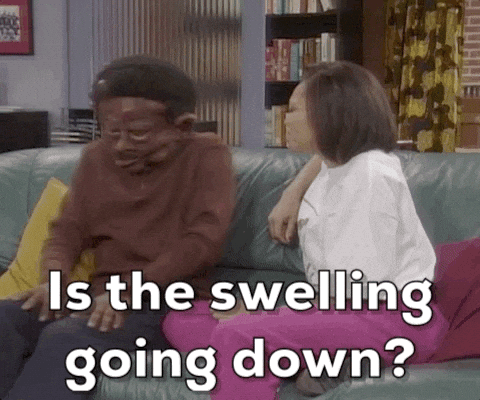 Giphy
GiphyAt the end of the day, an allergy is basically what transpires whenever your immune system “overreacts” to something that other people’s systems do not. And since sleep is what helps to keep your immune system nice and strong — well, I’m sure you get how less allergy-related symptoms and more sleep go hand in hand. Also, since sleep helps to decrease bodily inflammation (more on that in a bit) and inflammation can also intensify allergy symptoms, that’s just one more reason to get as much shut-eye as possible.
3. Less Sleep Means Potential Diabetes and Heart Disease
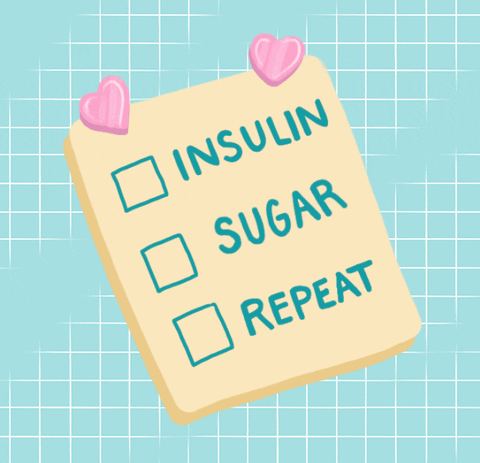 Giphy
GiphyDid you know that in 2024, Black women were diagnosed with diabetes 24 percent more than any other adult demographic. Also, it continues to be a reality that heart disease is the leading cause of death for Black women. These two sobering statistics alone should be enough of an incentive to do whatever you can to keep the risk of diabetes and heart disease way down.
One way to do that is by getting more sleep. Aside from the fact that sleep strengthens your immune system to where it is easier for you to fight off illness and diseases, sleep can keep your blood sugar levels in a healthy space; plus, when it comes to your heart, it gives it, along with your arteries and blood vessels a break.
4. Less Sleep Means Less Time for Your Body to Push “Reset”
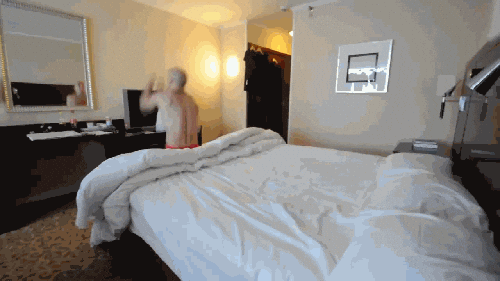 Giphy
GiphyIf you really stopped to consider all that your body goes through during the day (you can read some about that here), you definitely would respect it enough to do your best to thank it by giving it no less than six hours of sleep, each and every night. Sleep is what helps to slow your brain and body down so they are able to “refuel” for the next day. After all, how can your body prevent you from getting sick if your immune system is too worn out to fight ailments off? Exactly.
5. More Sleep Helps You to Fight Off Infections
 Giphy
GiphySpeaking of, in order for your body to fight off infections, there are certain cells and antibodies within you that need to be healthy and strong — one way that they get and stay that way is by you getting a good amount of sleep. For instance, remember when I touched on cytokines earlier? Well, the same way that they help to prevent colds, they also help to prevent infections too. And since sleep lowers your cortisol (stress) levels, rest gives your body the time and space to build up an army that can fight off free radicals and other health-related challenges while you are awake.
6. More Sleep Lowers Bodily Inflammation
 Giphy
GiphyWhenever a health-related issue is mentioned on this platform, inflammation is something that is mentioned quite a bit. Probably the easiest way to explain inflammation is it’s how your body responds/reacts whenever something is happening to your body that shouldn’t be, whether it’s an illness, an injury, a germ or something that you may be allergic to.
If you happen to have chronic inflammation, some symptoms that are associated with that include fatigue, stiff joints, skin rashes, weight gain and moodiness.
The interesting thing about all of this is if you aren’t getting enough rest, you could be triggering inflammation in your body. That’s because studies reveal that a lack of sleep can elevate molecules that are associated with inflammation. So, if you don’t want inflammation to increase within your system, you should definitely catch more zzz’s.
7. More Sleep Regulates Hormones
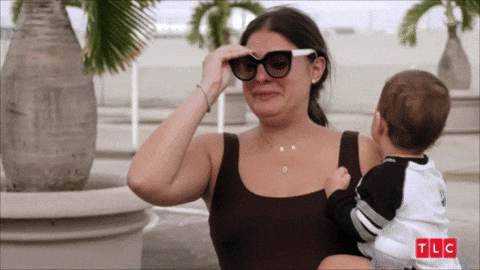 Giphy
GiphyWhen it comes to hormones like serotonin, estrogen and cortisol, believe it or not, they play a role in how your immune system acts and overreacts. That’s because, if your hormones are out of balance, that can cause your immune system to work harder than it actually should and that can make you more vulnerable to sickness. One way to keep your hormones leveled out? SLEEP.
That’s because sleep gives your body the opportunity to rest, repair and restore your hormone levels. On the other hand, when you are sleep deprived, that can put/keep your hormones on the ultimate roller coaster ride. #notgood
8. More Sleep Strengthens Vaccines
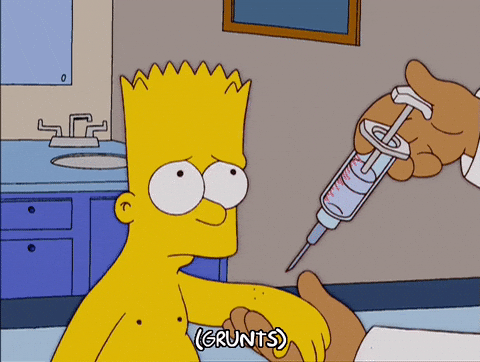 flu shot GIF - Find & Share on GIPHYGiphy
flu shot GIF - Find & Share on GIPHYGiphyIf you’re someone who is good for getting some sort of vaccine around this time of the year, make sure that you rest up before and after getting your shots. Not only does adequate rest before a vaccination help your immune system to be better receptive to your shots but sleep also helps your body to build up enough antibodies to make your vaccinations effective after getting them. Because if you’re gonna get pricked, shouldn’t it be worth it? My thoughts exactly.
Get some freakin’ sleep! Your immune system depends on it.
Let’s make things inbox official! Sign up for the xoNecole newsletter for love, wellness, career, and exclusive content delivered straight to your inbox.
Featured image by Shutterstock









